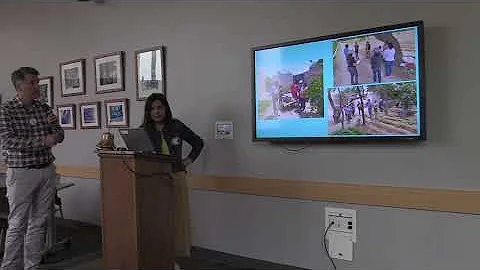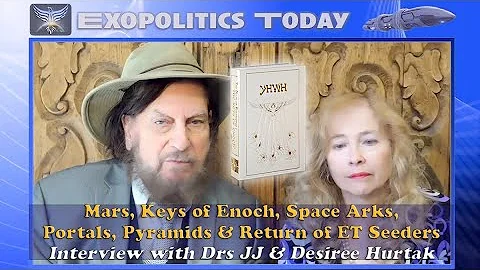Michael D Yakos
age ~81
from Cedar Rapids, IA
- Also known as:
-
- Michael Del Yakos
- Mike D Yakos
- Md Yakos
- Yakos Md
- Phone and address:
- 6511 Cottage Hill Ln NE, Cedar Rapids, IA 52411
Michael Yakos Phones & Addresses
- 6511 Cottage Hill Ln NE, Cedar Rapids, IA 52411
- 4239 Morelle Rd, Cedar Rapids, IA 52411
- Fountain Valley, CA
Us Patents
-
Gps Augmentation Using Time Offset Code Modulation
view source -
US Patent:6421006, Jul 16, 2002
-
Filed:Feb 28, 2000
-
Appl. No.:09/514088
-
Inventors:Michael D. Yakos - Cedar Rapids IA
John W. Murphy - Cedar Rapids IA -
Assignee:Rockwell Collins, Inc. - Cedar Rapids IA
-
International Classification:G01S 124
-
US Classification:342387
-
Abstract:A positioning system incorporating a time offset into the pseudo random noise codes. Incorporating the time offset, a transmitter from a pseudo satellite sends pseudo random noise codes to a receiver which recognizes the pseudo random noise codes with the offset. The offset is typically done as one or more hours. Knowing the offset value, the receiver then acquires the signal, and uses it to determine position, distance, etc. The use of an offset allows conventional receivers to ignore the time offset signal by selecting a time offset value which is greater than the searching time allowed in the conventional receiver. Equipment capable of recognizing the time offset signal is capable of thereby ignoring and/or distinguishing incoming signals from other sources.
-
Wireless Integrated Sensor Network Using Multiple Relayed Communications
view source -
US Patent:62082477, Mar 27, 2001
-
Filed:Aug 18, 1998
-
Appl. No.:9/135762
-
Inventors:Jonathan R. Agre - Oak Park CA
Loren P. Clare - Thousand Oaks CA
Henry O. Marcy - Camarillo CA
Allen J. Twarowski - Westlake Village CA
William Kaiser - Los Angeles CA
Wilmer A. Mickelson - Cedar Rapids IA
Michael D. Yakos - Cedar Rapids IA
Christian J. Loeffelholz - Cedar Rapids IA
Jonathan R. Engdahl - Chardon OH -
Assignee:Rockwell Science Center, LLC - Thousands Oaks CA
-
International Classification:G08B1/08
-
US Classification:340539
-
Abstract:Wireless integrated miniature sensing stations which can be organized into a communicating network allow sensitive detection and analysis of vibration, infrared radiation, sound, or other physical signals indicative of an intruder or condition to be monitored over a wide area. The sensing stations operate on low power and include a sensor or sensors, a digital signal processor, a microprocessor, and a wireless transceiver for communication. Network communication is facilitated by multiple relayed transmissions from station to station.
-
Method And Apparatus For Compensating Unexpected Frequency Shifts In Positioning Receivers
view source -
US Patent:60675039, May 23, 2000
-
Filed:Mar 24, 1999
-
Appl. No.:9/275569
-
Inventors:Michael D. Yakos - Cedar Rapids IA
-
Assignee:Rockwell Collins, Inc. - Cedar Rapids IA
-
International Classification:G01S 503
G01S 502 -
US Classification:701213
-
Abstract:Unexpected frequency shifts in GPS receivers are compensated by utilizing a shock detector or temperature transient detector. The detector can be utilized with a GPS receiver and provides a signal to adjust the signal-search algorithm. The signal-search algorithm is able to acquire or reacquire a satellite signal more quickly when adjusted by the shock detector. The receiver can be utilized in guided munitions and other vehicles which are susceptible to temperature transients and mechanical shocks.

Mike Yakos
view sourceYoutube
Classmates

Wickliffe High School, Wi...
view sourceGraduates:
Michael Yakos (1962-1966),
Tina Dukes (1993-1997),
Marianne Mccoy (1971-1973),
Terry Zilis (1969-1973),
Todd Putzbach (1981-1983),
Elizabeth Corbin (1971-1975)
Tina Dukes (1993-1997),
Marianne Mccoy (1971-1973),
Terry Zilis (1969-1973),
Todd Putzbach (1981-1983),
Elizabeth Corbin (1971-1975)

Regis High School, Cedar ...
view sourceGraduates:
James Beckman (1956-1960),
Mike Yakos (1985-1989),
Michael Hackman (1985-1989),
Michael Dyrland (1960-1964)
Mike Yakos (1985-1989),
Michael Hackman (1985-1989),
Michael Dyrland (1960-1964)
Get Report for Michael D Yakos from Cedar Rapids, IA, age ~81





